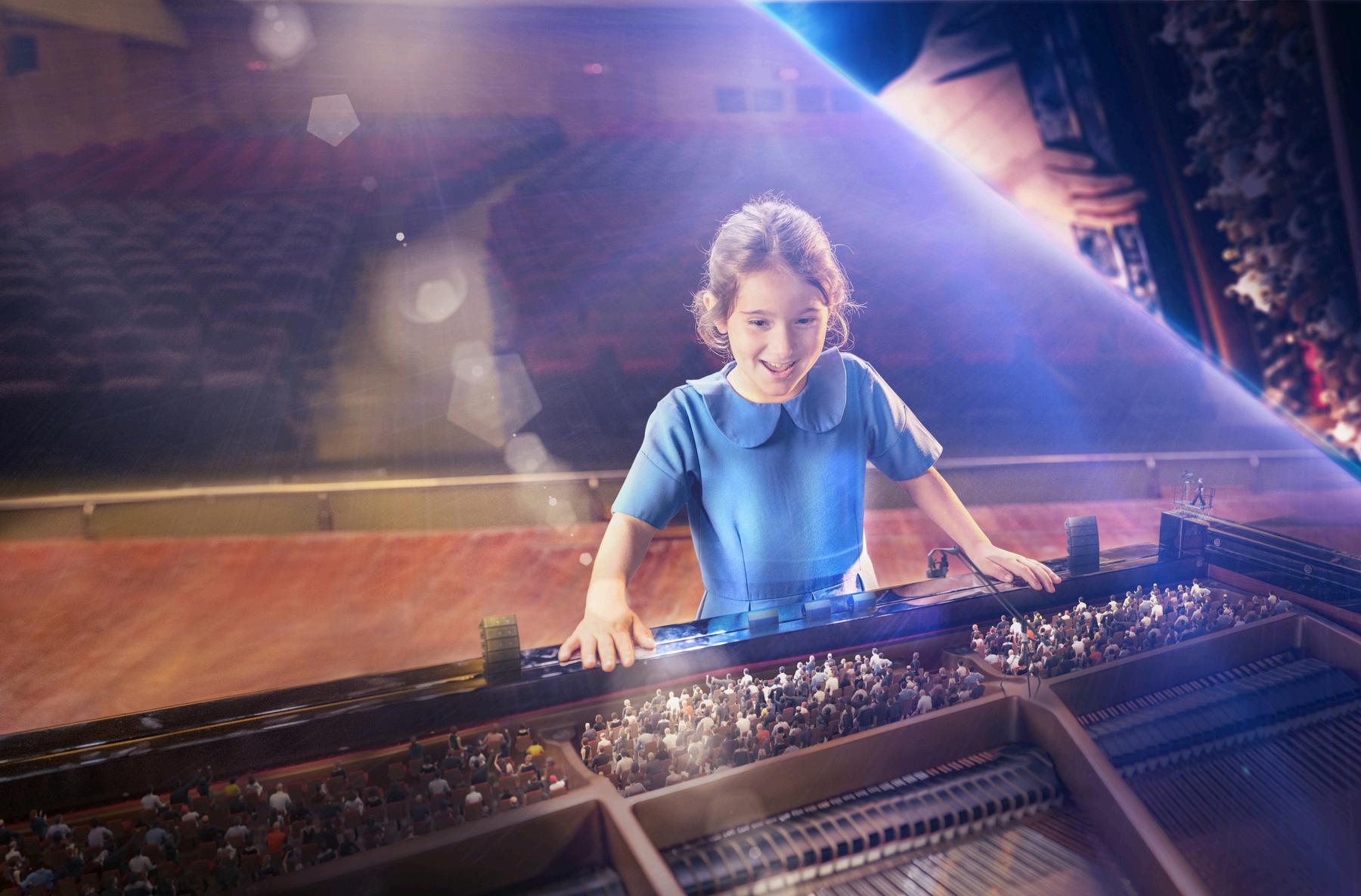
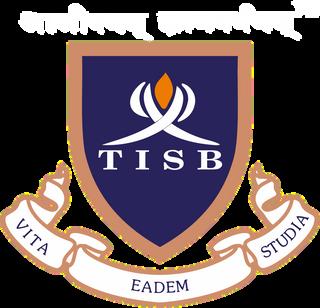



BE THE START OF BE THE START OF SOMETHING SOMETHING
ACRESOF ACRESOF CAMPUS CAMPUS

BOARDERS BOARDERS 30 25+
NATIONALITIES NATIONALITIES
CLUBS & CLUBS & ACTIVITIES ACTIVITIES

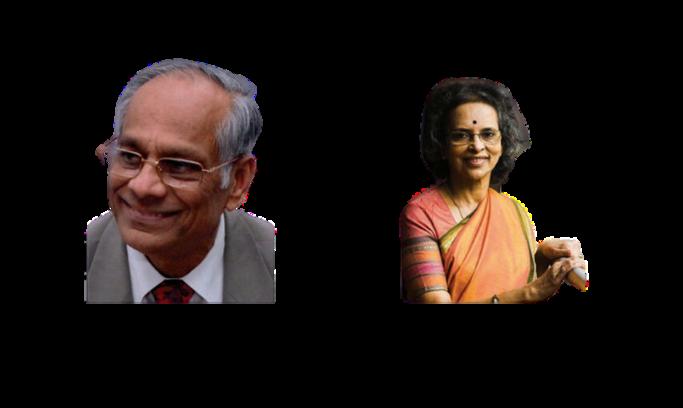

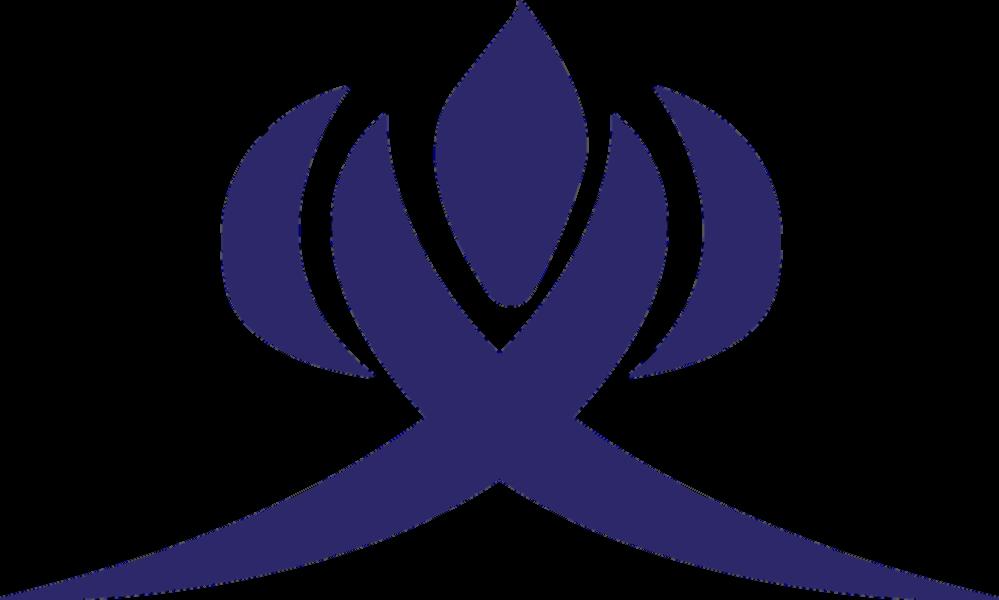

Principal



Ms.
PY Deputy PrincipalPastoral & Operations

Ms.
PY Deputy PrincipalAcademic & Professional Development

and inspired, they are more
Whether your child continu them to thrive in an ever thoughtful, courageous, and

We look forward to welcoming you to our vibrant community and to partnering with you in your child’s learning journey
With warmest wishes,



TISB believes in respect towards students, staff and the school, and fostering relationships based on fun and friendship.

TISB prides itself on student equality and fairness regardless of age, background or ability. Diversity is accepted and valued so no one feels excluded or less important.

TISB’s community spirit and friendly atmosphere allow individual personalities to develop, and our student-led events and activities foster a supportive, nurturing and caring community.

We feel proud to be part of our school community with a desire to excel and to do the best we can with integrity and honesty.
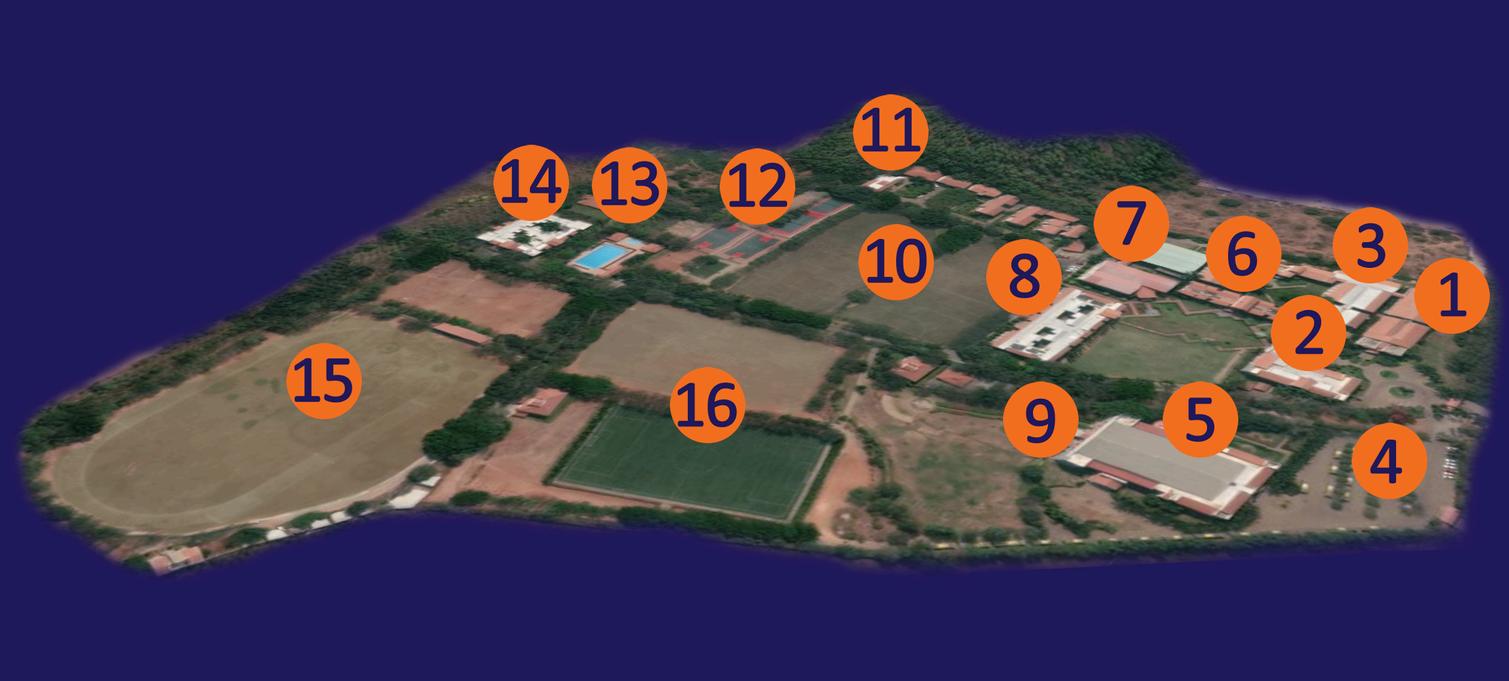
The International School Bangalore (TISB) is an independent, selective, coeducational day and boarding school, located on a 140-acre campus in the Whitfield area of Bangalore, in Southern India.
TISB has extensive sporting facilities including a 25m outdoor swimming pool, a cricket pitch, a hockey pitch, two tennis courts, two basketball courts, a volleyball court, throw ball court, two wooden and two badminton courts, a gymnasium and a fitness suite.
The campus facilities provides two libraries, music rooms, and two auditoriums and an amphitheater for creative activities, presentations and competitions.
In the Primary Years (PY), we believe that learning is for life, and the learner is at the heart of everything we do. Our aim is to provide children with the very best education and support to deepen and nurture their interests, within an environment that is welcoming, safe and happy. The children are encouraged to be active and to learn in cooperation with others. We are fortunate to have an enthusiastic team of teachers who are there to support your children during their learning journey with us.
Our goal at TISB is to develop children who are: TISB strives to be a globally leading innovative international school that fosters a culture of aspiration, empowerment and strong community valuesmaking it the first school of choice.

We will inspire and challenge every student to flourish and achieve their full potential, both now and in the future, and instill a passion for lifelong learning.
KNOWLEDGEABLE
THINKERS COMMUNICATORS
PRINCIPLED
OPEN-MINDED CARING RISK-TAKERS
BALANCED REFLECTIVE

At TISB, we are committed to nurturing the attributes of the IB Learner Profile in every Primary Years (PY) student. These attributes such as being caring, open-minded, reflective, and principled—are at the heart of the IB philosophy and guide our approach to education. We actively develop these qualities through a range of purposeful experiences, including dedicated classroom activities, rich discussions, reflective circle times, and read-alouds of thoughtfully chosen books. Assemblies and role-modelling by teachers and peers also play a key role in helping children understand and embody these attributes in everyday life.
By creating an environment where the Learner Profile is visible, lived, and celebrated, we empower our students to grow as compassionate, balanced, and internationally minded individuals.



cording to the latest research, soon we will only be as good as the skills we possess. Now more than ever, students need the intellectual power to recognise societal problems; ask good questions and develop robust investigations into them; consider possible solutions and consequences; communicate and act upon what they learn. Contemporary curriculum experts agree that conceptual understanding is key for student success in school, jobs, and life.
We are thrilled to announce an exciting new chapter in our school's educational journey - a shift towards the International Baccalaureate (IB) Primary Years Programme (PYP). TISB is now an official candidate school for the International Baccalaureate (IB) Primary Years Programme (PYP) Achieving candidacy status is a testament to our commitment to providing an enriching, - based, and globally oriented education for our students. As a candidate school, we embarked on a thoughtful and comprehensive process of aligning our existing educ practices with the principles and philosophy of the PYP.
The IB Primary Years Programme (PYP) for children aged 3 - 12 nurtures and develops students as caring, active participants in a lifelong journey of learning. The PYP offers an in based, transdisciplinary curriculum framework that builds conceptual understanding. student-centred approach to education that reflects the best of educational research, t leadership and experience derived from IB World Schools. The PYP is an example o educational practice globally, responding to the challenges and opportunities facing students in our rapidly changing world.



Our Early Years educators implement the International Baccalaureate PYP in combination with the Early Years Foundation Stage (EYFS) and children will mostly learn through game and play.
The Early Years Foundation Stage is made up of the following prime areas of learning and development which are:




















Children develop and learn in different ways and at different rates. All areas of Learning and Development are important and are interconnected. Learning should be fun therefore we use play as the principal basis for our learning. Using observation and assessment we determine the learning needs of each child, providing the opportunities they need through the environment. We offer this in various ways incorporating structured play activities, focused tasks and teacher/adult interaction as well as the many opportunities for independent childinitiated learning.
This provides a basis for future learning in LG1. As learning takes place both indoors and outdoors, we ensure both safeguarding and health and safety requirements are adhered to by regular safety checks of learning areas and equipment, as well following adult child ratio in relation to recommendations.
Curriculum Overview
The IB PYP is designed for students aged 3 to 12. The PYP is a framework guided by six transdisciplinary themes of global significance, explored using knowledge and skills derived from six subject areas, as well as transdisciplinary skills, with a powerful emphasis on inquiry.
The six subject areas identified within the IB Primary Years Programme:

At TISB, we will continue to teach ICT as a stand-alone subject and integrate tasks within the curriculum. Additionally, to ensure discipline rigour is not lost, we will have stand-alone Inquiry Units of English and Mathematics.

While the PYP focuses on transdisciplinary learning and encourages connections across subjects, language is not typically taught as stand-alone lessons. At TISB, to maintain and build on reading as well as writing skills, parallel and stand-alone units of study will be taken up in the literacy lessons scheduled each week. However, it is important to note that language skills and understandings developed in these lessons will be transferrable to every PYP unit of inquiry.
The curriculum develops enthusiastic, independent readers who can analyse, evaluate, and critique texts through reading conferences and dedicated reading lessons. In addition, each class has a bi-weekly writing task where children work independently and write for a range of audiences, which gives them a purpose for their writing using a stimulus.
Reading and writing conferences are integral components of the literacy lessons. These one-on-one or small-group interactions between teachers and students play a crucial role in supporting and enhancing students' reading and writing skills. Students receive timely and targeted feedback on their reading and writing progress during conferences. Teachers offer constructive suggestions to help students refine their skills and grow as readers and writers. Teachers and students collaboratively set reading and writing goals during conferences. In addition to their timetabled literacy lessons, the children also have a session in the Primary Years Library.
At TISB we believe it is important to ensure that our students have a mathematical mindset. By having a mathematical mindset students see their role in understanding and making sense of the mathematics that they are doing. Therefore, our approach centres on developing a deep understanding of mathematical concepts and their applications. This approach goes beyond memorizing procedures and formulas and instead focuses on helping students make connections, think critically, and apply their mathematical knowledge in various contexts. and instead focuses on helping students make connections, think critically, and apply their mathematical knowledge in various contexts.
The diagram shows all the essential components in a mathematics lesson. Lessons are differentiated to cater for the different rates of progress.
We endeavour to raise the enjoyment of Mathematics through dedicated events such as Math Day and by promoting international competiti h SASMO (Si & A i Schools Math Olympiad.)






Throughout the week PY children, alongside the Units of Inquiry and specialist Maths lessons, have other specialist subjects complete the curriculum:
Through various mediums of art, PY children enhance their creative skills, improve their levels of concentration and experiment with various mediums. The curriculum focuses on developing a love of art and providing opportunities for self-expression and use of the imagination. A variety of media are used including print making, ceramics, construction, and textiles. Children’s artwork is displayed throughout the school. The programme is inextricably linked to the topic work in each Grade.
The Music curriculum is designed to ensure that every child has the best possible opportunity to develop their skills, understanding, appreciation and passion for music at all levels. Children have an opportunity to sing and play musical instruments while developing their listening, creating, and performing skills. Parents have the chance to see the children perform during various recitals and concerts throughout the year. Music progress is displayed through our Music Gala performances.
Integrated into the teaching and learning process, ICT provides children with the opportunity to safely acquire technological skills and enhance their learning experience. We have an ICT lab where they learn the basic skills, which are: Digital literacy, Computer Science, and Information Technology. Where appropriate, these skills are linked to topics occurring within the Grade in other curriculum areas or taught through projects that give students the opportunity to gain knowledge of ICT and to implement these skills. Through the use of ICT, learners develop and apply strategies for critical and creative thinking, engage in inquiry, make connections, and apply new understandings and skills in different contexts.
At TISB we are fortunate to have a fabulous team of PE teachers.Students enjoy a range of sports which includes basketball, football, badminton etc. This means that the PY students have blocks of PE (80 minutes) and blocks of swimming (40 or 80 minutes) per week. These are joined together to allow for longer sustained sessions. All children learn to swim in one of the TISB swimming pools and are taught and supervised by multiple instructors. As well as learning skills and practicing how to do things, the children engage in various physical activities, sports, games, and exercises to develop their physical abilities and teamwork skills.
IB policy strongly recommends the development of one world language throughout the PYP programme. At TISB, we offer the world languages of French and Hindi from Lower Grade 1 with a focus on enhancing their cognitive and communication skills. This also helps us fosters global understanding. The MFL curriculum focuses on developing communication skills in a particular language. They read a variety of texts and understand commonly used written words, phrases and texts made of short sentences. They are encouraged to speak clearly, fluently, and confidently to different people, and for a range of purposes - to listen to others, to understand, and to respond using varied active learning strategies across the units. The aim is to help the children become confident speakers with the ability to listen carefully and critically assess the thoughts of others.
At TISB, we welcome students from around the world. Our students join us with diverse cultural identities and language profiles. Learning an entire curriculum and its language of instruction simultaneously is, quite clearly, a considerable undertaking. To help its non-native speakers of English meet this challenge, the Primary Years offers a flexible EAL programme, and students are withdrawn from MFL class to receive specialist EAL lessons. Our EAL program is designed to assist students in integrating into an English‐ speaking environment so that they feel comfortable at our school and help them acquire English language proficiency while also ensuring their academic success in mainstream classrooms. Students are offered language support through specialized EAL classes or in class support.

The Primary Years Programmecurriculum frameworkhas three pillars: the learner, learning and teaching, and the learning community.
The framework serves as the curriculum organizer and offers an in-depth guide to achieve authentic conceptual inquiry-based learning that is engaging, significant, challenging, and relevant for PYP students.
Through the programme of inquiry and by reflecting on their learning, PYP students develop knowledge, conceptual understandings, skills, and the attributes of the IB Learner profile.
The six transdisciplinary themes that guide Units of Inquiry and compose a year of study are:
Who we are
How we express ourselves
How we organize ourselves
Where we are in place and time
How the world works
Sharing the planet.
Each theme is addressed each year by all students. (Students aged 3 to 5 engage with four of the themes each year.) These transdisciplinary themes help develop a programme of inquiry in which important ideas (identified by the school) are investigated, requiring a high level of involvement from the students. These inquiries are substantial and engaging, usually lasting for 7-8 weeks. Units of Inquiry interweave subject areas such as English, Mathematics, Language, Arts, Design, Science and Social Studies. This approach encourages students to make connections between what they learn in core subject areas and how it relates to the world around them.
Scope and Sequence: Standards

Standards for various disciplines in education are guidelines and frameworks that define what students are expected to know and be able to do at specific grade levels or developmental stages. These standards serve as a roadmap for educators, providing a clear set of learning objectives and outcomes that guide curriculum development, instruction, and assessment. At TISB, we adapt the following standards to develop the scope and sequence for the different units of study across subjects.
Common Core Standards for English Language Arts and Mathematics
Next Generation Science Standards (NGSS) for developing Units of Science
Common European Framework of Reference for Languages (CEFR) for World Languages
C3 Framework and guidelines by The National Council for the Social Studies for Social Studies
The National Core Arts Standards for arts education, both visual and performing (Art and Music)
A regular day in PY can look varied and different depending on the subjects scheduled. Please take a look at some sample days for the following grades.
7:20 - 7:30: Class Registration & Class Wellbeing
*MFL: Modern Foreign Languages
*PSHME: Personal, Social, and Physical Education
*ICT: Information and Communication Technology
Our strong Teaching for Learning policy outlines the expectations for our teachers. All teachers teach to create plans with clear learning objectives and skill progression that align with the medium- and long-term plans in each subject. Children’s progress is measured against the expected skills required for each year group, and plans are adapted to support them to become resilient.
We have a robust system of assessing students, and we do so in several ways, including formal summative style assessment, formative assessments and self or peer assessment. We use Fountas and Pinnell Reading Assessments along with regular writing assessments based on the 6+1 Traits of Writing to benchmark students against the expected learning standards for their grade level. These benchmark assessments help us identify each child’s starting point, uncover any learning gaps, and track progress throughout the year. Based on the insights gained from a range of assessments, we are able to set personalised learning targets to support each child's growth and development.
We believe that Assessment for Learning or Formative assessment is the key to effective teaching and learning. These are built within our learning experiences which inform our practice and enable us to meet the needs of each child. We use our formative assessments to measure progress towards academic targets set for each child.
Project presentations form a part of our assessment portfolio. The children complete independent or group assignments such as creating models, brochures, dioramas, and these are presented to their peers. We encourage children to self and peerassess each other, and the ‘2 stars and a wish’ or student created rubrics are common tools used for this. By using self and peer assessment, our children develop the ability to be analytical, critical, and reflective, which are skills that help them to be better learners.
Dialogue with children and scrutiny of their work provide a great deal of information about the effectiveness of the curriculum as well as its delivery. Monitoring enables class teachers and PY leaders to support the development of children and identify as well as meet continuing professional development (CPD) needs.
By adopting an inquiry-based approach within the PYP framework, our children develop a deeper awareness of global issues and make meaningful connections across subjects. They build essential knowledge, skills, and understanding that support them in becoming adaptable, empathetic, and reflective learners. Most importantly, they develop a growth mindset—a crucial trait in today’s rapidly evolving, AI-driven world. Our children “buzz with enthusiasm” when they talk about their learning, demonstrating ownership of their educational journey.
Children in LG1 to Grade 5 take part in cocurricular activities on Mondays from 1.10 pm to 2.30 pm. The CCAs are provided by a mix of external companies and some of the TISB Teaching Team. The children have a choice from a range of activities, including Ballet
Contemporary Dance
Chess Robotics
Space Education
Drama
Art and Craft
Maker's Space (Wood Workshop)
Indian karate
My kids enjoy so many activities in addition to the core academics in school that it makes me want to be young again and go to TISB! KG Parent
Children in Grade 3 – 5 can partake in a range of after- school sports including Soccer Cricket
Swimming and Basketball, where they receive practice and coaching from the Team of PE specialists.There is also an option to join the PY choir with our vibrant PY Music teacher. The children select their options based on their preferences. ASAs run from 2.45pm-4.10pm.
In PY, we make it a point to value a holistic approach to child development. As part of this, children are given the opportunity to take instrumental or voice lessons. Children are given the chance to also show what they have learned through participation in recitals, larger concerts, and other events. Our aim is to give every child the chance to perform and in addition to performing music as a soloist, PY offers Choir and select instrumental ensembles.
In STEAM CCA I have learned to build basic structures and the differences between stronger and weaker structures. I am now in the middle of building a Windmill. Shariq, Grade 5

In PY, we aim to ensure that families feel like an integral part of our community. By working in true partnership, we believe that we can create a meaningful experience for everyone connected with us. We are a listening school and will continually strive to improve and welcome parental feedback in the process. Throughout the term, we hold informal events called Coffee Catch Ups, Workahops for parents. The purpose of these events is twofold; it is a platform for parents to share their views, as well as an opportunity for parents to meet one another. We encourage our families to attend and participate in our many annual PY events, which include charitable events, Sports Day and the Making Learning Visible. We also have Parent Representatives for each PY class. Parents volunteer to be a part of this group and work in partnership with the school on specific projects like the Multi-Cultural Carnival and Charity collections. It is a wonderful opportunity for the parents and PY Team to collaborate and work more closely together.


that our son can learn with children over the world.
rellana, KG Parent


Parents are kept informed of their child’s progress in multiple ways via Student Diaries, Email, Friday updates, PY Weekly updates, Parent Teacher Conferences (PTCs) and termly written reports. Parents receive termly Curriculum Overviews, which are a summary of the major learning objectives to be taught during the term.
The Parent Teacher Conferences (PTCs) take place in Terms 1 and 2 and are a chance for parents to discuss how their child is progressing, both academically and socially. The PY teachers conduct new parent meetings within the first month of a new child joining the school, as a way of touching base on how a child is settling in. Teachers and parents also communicate via email and can connect over MS Teams for a virtual catch up or parents can arrange an appointment as and when needed.
If a child is having any difficulties with settling in, with specific learning needs, social skills or pastoral concerns, the teachers arrange for additional meetings with parents so we can work together to help the child through these more complex issues.
We are aware that Covid-related school closures have affected children in various ways. Children have lost up to two years of formal learning. Our school policies, procedures, restorative practices such as prior checks, circle times, one on one interactions with students align with the restorative philosophy that values every member of the community. Adapting this philosophy helps us bridge the academic gap and equip them with appropriate social skills required for a holistic development.
We are content. My child says it is more interesting to be at school. We have little trouble to convince her about holidays Parent of Anika Ghosh, UG1A

Her hands clutched mine as we returned to the same PY corridors where she ran. Her insistence on returning to the same school for Senior Years made us proud of the memories we made and the moments we look forward to as the lil one gets inspired to run on the same grounds Parent
In PY, we believe every child is unique, as are their needs. Pastoral care in PY focuses on cultivating an environm physical, social, emotional and intellectual development of every student. Our endeavour is to enable each stud realise their full potential in all aspects of their education and overall development. Pastoral care is given a high prio working closely with specialist teachers, and parents to ensure every child is safe and happy. The weekly assemblies addressing various essential topics and fostering a supportive and inclusive school community. Topics covered d span a wide range of important themes, including strategies to deal with rudeness and bullying, promoting kindness and empathy, understanding nutrition, and managing conflicts effectively. Through interactive sessions, students actively engage with these topics, gaining valuable insights and practical skills that extend beyond the classroom.

Furthermore, the impact of these assemblies is reinforced through follow-up activities conducted during circle time in classes. This structured approach ensures that the lessons learned during assemblies are integrated into students' daily lives, promoting long-term understanding and application of key principles.
Importantly, our learning environment provides a safe and supportive environment for students to express their concerns, share their feelings, and seek guidance from their peers and educators. By encouraging open communication and empathy, we empower students to voice their thoughts and emotions, fostering a culture of respect, understanding, and support within our school community.

ve in building a positive parent-teacher partnership for an optimal learning environment for the child. In this regard, lar webinars for parents on relevant topics such as student wellbeing and emotional wellbeing.
In the Primary Years, we have Grade 5 Prefects to promote the PY Values on a day-to-day basis and to be role models for students. The prefects are encouraged to bring out initiatives which are implemented with the guidance of the Deputy Principal and senior prefects. These responsibilities help them build their leadership and team-building skills and help in enhancing their confidence.
Children in PY are part of the School House system. When they enter, they will be assigned a House. Throughout the school, children are encouraged to achieve house points. House points are rewarded for hard work, good behaviour, or for following the PY values. Children receive house points from members of staff, which are totalled each week and celebrated in assembly. The children have opportunities to attend H de in earning House points.




Children in LG1 – Grade 5 have weekly assemblies focusing on aspects of personal, social, health, and Physical education (PSPE), as well as discussing celebrations. In addition, they take part in assemblies to recognise their good work. Praise Certificates are awarded each week in assembly for exceptional work, progress or effort. At the end of each year, children receive a special certificate in recognition of something outstanding they have done—either in a subject area or for consistently demonstrating the attributes of the IB Learner Profile.
In PY, we believe in the power of experiential learning, and our students certainly do not miss out on the adventure. Our trips programme for students in Pre-KG to Grade 5 is designed to offer memorable, educational experiences beyond the classroom. Our trips include a variety such as Day trips, Overnight School Camping and Residential trips. Whether it's a visit to a local farm to understand the concept of 'Farm to Table' or exploring the school or Mysuru, these trips add a vibrant dimension to their learning journey.




8 ASA Sports Options
Exciting Residential Field Trips (Grade 4 & 5 3 nights, 4 days)
Inter-school competitions Weekly CCA activities

Dedicated Learning Assistants for each Grade

Regular competitions across PY
14 PY prefects
7 options for additional music / instrumental lessons
Learning to Learn skills embedded in the curriculum
Special Principal Commendation awards given for outstanding achievements
Student council members give feedback on PY programmes and developments
PY Music Recitals happen regularly so students can showcase their skills

The admissions process for children is aimed at helping us get to know the child – their strengths and areas where they need support. All children go through an interview process with the PY Team. This is a chance for us to talk with the child and get to know their interests, how they are doing at school and the things they are passionate about.
Children applying for Grades 3, 4 and 5 will sit Entrance Tests in English and Maths. These enable us to see where a child would adjust and cope with our curriculum, we can gauge what the children are good at and where they may need support.
During this process we also discuss if the child will need any support with English if it is a new language for them and identify any who may need EAL classes during their transition to the school, especially if moving from overseas where English is not their mother tongue. We offer small group out of class support for children as they adapt to being educated in English, if it is needed.
User applies via website
User is informed about status of credit card
REGISTER APPLICANT DETAILS
ADMISSIONS DEPARTMENT WILL REPLY
ENTRANCE TEST (FOR GRADES 3,4,5)
INTERVIEW WITH PY LEADERSHIP
ANSWER WITHIN TWO WEEKS
IF ACCEPTED, WELCOME TO TISB & PY!
FOR MORE INFORMATION VISIT THE ADMISSIONS PAGE ON OUR WEBSITE
QUESTIONS?
Contact the Admissions Department
admission@tisb.ac.in



The best and reassuring thing about TISB is the nurturing environment that the school offers in PY. The teachers are lovely and the rigour is built in gradually.
Gopika Lall mother of Sanaya Lall Dev.


The International School Bangalore Whitefield - Sarjapur Road, Near Dommasandra Circle Bangalore 562125 +91 80 6723 5900 / www.tisb.org admission@tisb.ac.in
As a co-educational, day and boarding through school, TISB is a beacon of educational excellence and inspiration, nurturing generations of local and international students to become confident, compassionate, and capable global citizens
Mrs. Kate Reynolds, Principal

